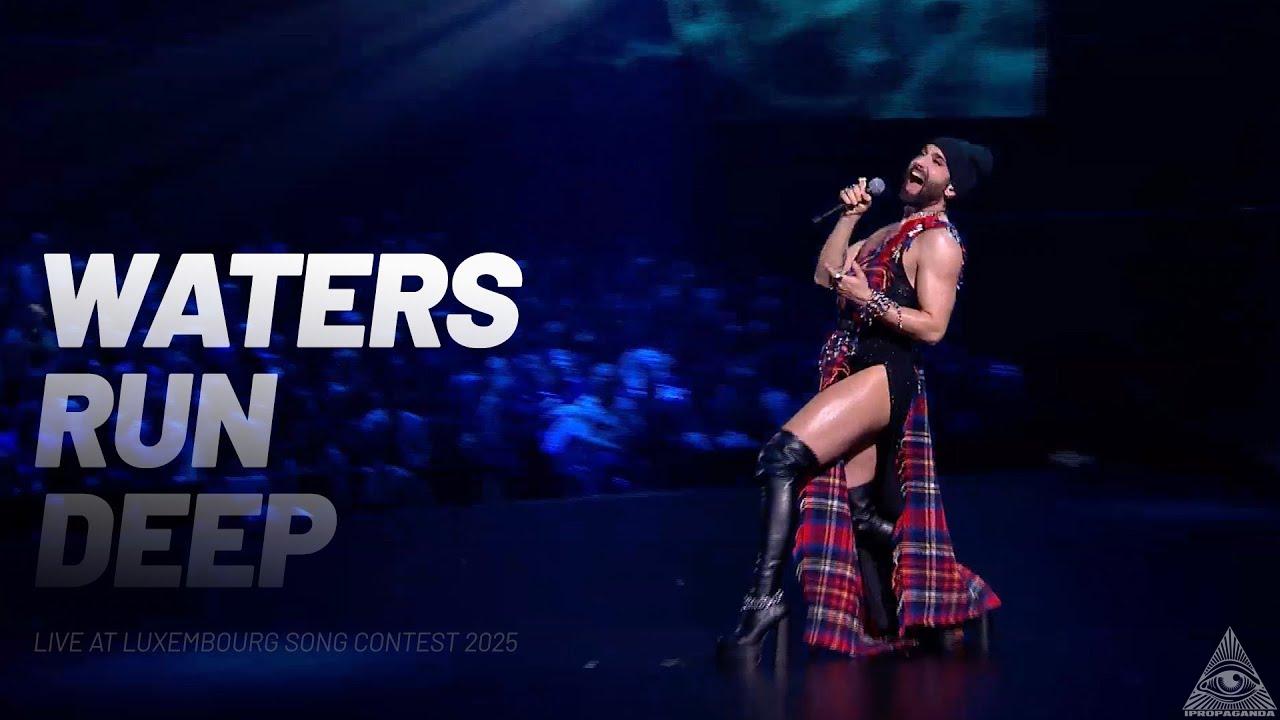
Conchita Wurst’s “Waters Run Deep”: a sleek, Bond-tinged return with real emotional weight
A comeback timed to the season—and to Eurovision
After a quiet spell on the release front, Conchita Wurst re-enters with purpose. “Waters Run Deep” first surfaced in a live TV premiere at the Luxembourg Song Contest on January 25, 2025, before arriving as a single on Friday, March 21, 2025—a canny spring drop that also teed up her Eurovision-season calendar. The premiere performance was taped in Esch-sur-Alzette and later uploaded, giving fans a first glimpse of the song’s drama and shape.
This single isn’t a one-off, either. It leads into Mrs Thomas, a five-track EP that landed on April 25, 2025, collecting “Waters Run Deep” alongside new material in an organic, orchestral palette.
The sound: tension, release, and a cinematic gleam
“Waters Run Deep” opens like a held breath—hushed guitar figure, space between the notes—before sub-bass and pulse nudge the track forward. Conchita stays close to the mic at first, almost conspiratorial, then lets the melody arc higher as piano and synths widen the frame. There’s a deliberate stop-start architecture here: a brief blackout, then a surge, then a bigger surge. It’s the grammar of spy-film title sequences—tease, feint, reveal—rendered in pop form.
The production keeps textures clean so the voice can do the heavy lifting. When the final ad-lib lifts off, it’s not showboating; it’s the narrative crest the arrangement has been building toward. The overall effect is glamorous but not gaudy: a sleek ballad that nods to the widescreen drama Conchita brought to “Rise Like a Phoenix,” while trading torches-and-strings for darker electronics and a cooler, modern sheen.
The lyric: intimacy coded as landscape
The refrain—“These waters run deep / under the mountains”—doesn’t just paint a picture; it maps an interior. Secrets are rivers; vulnerability is topography. Lines about “uncover my streams” and a “secret garden” make the emotional stakes tangible without lapsing into diary prose, and the invitation to “cut me out of tide like leather” flips the usual softness of love-song metaphors into something tactile and tough. It reads like a pact between two people who know danger and choose revelation anyway.
The performance language: elegance with an edge
On camera, Conchita leans into controlled movement and direct gaze—elegant, slightly hypnotic, never fussy. The styling and blocking stay minimal so the dynamics of the song can breathe. That restraint pays off when the vocal finally blooms; the contrast sells the drama better than any pyrotechnics could. The official uploads and music-video placements amplify that aesthetic, balancing close-ups with negative space so the track’s tension can do its work.
Context: a strategic season—TV, collaborations, and live stages
“Waters Run Deep” arrived amid a busy schedule. Conchita sat as a guest judge on Dancing Stars on March 21, 2025 (live from 20:15 on ORF 1), putting her back in front of a prime-time audience on release day.
There was also a canny heritage-pop crossover: a new duet version of Marianne Rosenberg’s evergreen “Er gehört zu mir,” issued as part of Rosenberg’s Bunter Planet: Die Jubiläums-Edition—a fresh gloss on a Schlager classic that underlined Conchita’s range outside high drama.
And for Eurovision diehards, Conchita helped switch on the week: a concert at Eurovision Village, Basel, on Monday, May 12, 2025, set the tone before the Grand Final days later.
How it fits in the EP arc
On Mrs Thomas, “Waters Run Deep” functions as the moody compass point. The EP’s five tracks favor cinematic builds and acoustic-orchestral colors, but the single anchors the set in a cooler, nocturnal register—half confession, half masquerade. Hearing it in sequence, you can feel how its chiaroscuro helps the warmer or more openly symphonic moments land harder.
Verdict: a quiet thunderclap
“Waters Run Deep” is less about belting the rafters and more about pressure and release—about letting a song smolder until one perfectly judged blaze. It’s the kind of record that rewards a good pair of headphones: you catch the air in the room, the weight of the low end, the way a single harmonized line can turn a line of verse into a confession. Conchita’s superpower has always been dramatizing vulnerability without tipping into melodrama; here, she does it with the economy and elegance of a title-sequence classic. The waters do run deep—and the surface gleam is irresistible.
